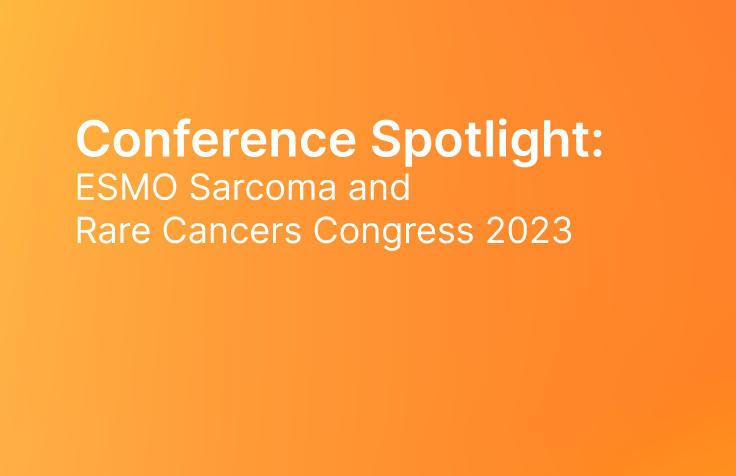Soft tissue sarcomas are malignant tumors originating from mesenchymal tissue, comprising a highly diverse group with numerous subtypes. Accurate classification is essential, as these tumors exhibit significant differences in biological behavior, clinical outcomes, and therapeutic responses. A widely held principle among pathologists, “the right treatment starts with the right diagnosis,” underscores the critical importance of precision in diagnosing these rare and complex malignancies. Traditional diagnostic approaches, primarily based on histopathology and immunohistochemistry, often fall short in addressing the intricacies of these tumors. However, recent advances in genomic technologies, particularly whole-genome sequencing (WGS) and whole-transcriptome sequencing (WTS), are revolutionizing the diagnostic and treatment paradigms for sarcoma patients.
Revolutionizing diagnosis with genomic insights
WGS and WTS offer unparalleled insights into the molecular features of sarcomas. WGS comprehensively identifies DNA-based alterations, including mutations, copy number variations, and structural rearrangements. WTS, meanwhile, provides critical RNA-level data, revealing gene expression profiles and fusion transcripts—key biomarkers in sarcoma subtyping.
Recent studies have demonstrated the transformative potential of incorporating WGS and WTS into routine diagnostic workflows for sarcomas. These technologies have been shown to correct a significant proportion of clinical diagnoses.1,2 In a recent publication by Felix Haglund, MD, PhD, and his team at Karolinska Institute, whole genome and transcriptome sequencing (WGTS) led to the reclassification of 7% (13 out of 197) of histopathological diagnoses.1
In a video interview, Dr Haglund said: “We sequenced quite a lot of tumors, so if we would sequence just the most difficult tumors, that number [of reclassified tumors] would naturally be higher, but we included quite a broad range of tumors. We found that some cases where we were quite certain about the diagnosis, it still got revised from genetics [WGTS], and that told us that we had to improve our diagnostics.” These results are in line with previously published diagnostic yields for WGTS in sarcomas.2,3 Notably, four cases previously diagnosed as low-grade sarcomas were downgraded to benign lesions, while two others were reclassified as metastatic malignant melanomas. Furthermore, WTS proved invaluable in identifying fusion genes linked to specific tumor types, which were detected in 30 samples, emphasizing its role in refining tumor classification.
Guiding personalized treatment approaches
In addition to aiding diagnosis, Dr Haglund and his team also found that WGTS could identify actionable therapeutic targets in a number of sarcoma tumors. For malignant soft-tissue and bone tumors, they identified treatment-relevant variants in 15% of cases. This capability is vital for ensuring patients receive therapies aligned with their tumor’s molecular profile, improving both efficacy and quality of life.
Detecting hereditary cancer syndromes
Another advantage highlighted in the study by the Karolinska team is the ability of WGTS to detect germline mutations associated with hereditary cancer syndromes. In their study, WGTS identified these variants in 22 out of 200 participants (11%). These findings can not only influence patient management but can also have implications for familial genetic counseling and surveillance. The integration of hereditary risk assessment into routine sarcoma care, as demonstrated by Karolinska’s approach, exemplifies a holistic model of genomic medicine.
Looking ahead: The future of sarcoma genomics
As a result of the work performed by Dr Haglund to evaluate the added diagnostic and clinical utility of WGS and WTS compared to standard-of-care diagnostic tests, WGTS is now integrated as part of the clinical routine at Karolinska in the diagnosis and treatment of sarcomas. Karolinska’s leadership in genomic medicine exemplifies how these technologies can bridge the gap between research and clinical application, setting a benchmark for precision oncology worldwide. By leveraging the full potential of genomic profiling, clinicians can offer sarcoma patients more accurate diagnoses, personalized treatment options, and improved prognoses.
Watch Dr Felix Haglund, director of Bone and Soft Tissue Pathology and consultant clinical pathologist at Karolinska University Hospital, and Magnus Carlsson, former president of the Swedish Sarcoma Association, as they discuss the findings from Dr Haglund’s recent study at Karolinska Hospital,1 highlighting the value of WGTS for sarcomas.
References
1. Öfverholm I, Wallander K, Haglund C, et al. Comprehensive Genomic Profiling Alters Clinical Diagnoses in a Significant Fraction of Tumors Suspicious of Sarcoma. Clin Cancer Res. 2024;30(12):2647-2658. doi:10.1158/1078-0432.ccr-24-0384
2. Schipper LJ, Monkhorst K, Samsom KG, et al. Clinical Impact of Prospective Whole Genome Sequencing in Sarcoma Patients. Cancers. 2022;14(2):436. doi:10.3390/cancers14020436
3. Schipper LJ, Monkhorst K, Samsom KG, et al. Clinical Impact of Prospective Whole Genome Sequencing in Sarcoma Patients. Cancers (Basel). 2022 Jan 16;14(2):436. doi: 10.3390/cancers14020436.
M-EMEA-01687
Other articles

Conference Spotlight: Prospective study supports use of WGTS in routine diagnostics of bone and soft tissue tumors.
From ESMO Sarcoma and Rare Cancers Congress 2023, an evaluation study by Karolinska Institute of Whole Genome and Transcriptome Sequencing (WGTS) for routine diagnosis of bone or soft tissue tumors.




 Upgrade your browser or select an alternate
Upgrade your browser or select an alternate Chrome
Chrome Firefox
Firefox Safari
Safari Edge
Edge